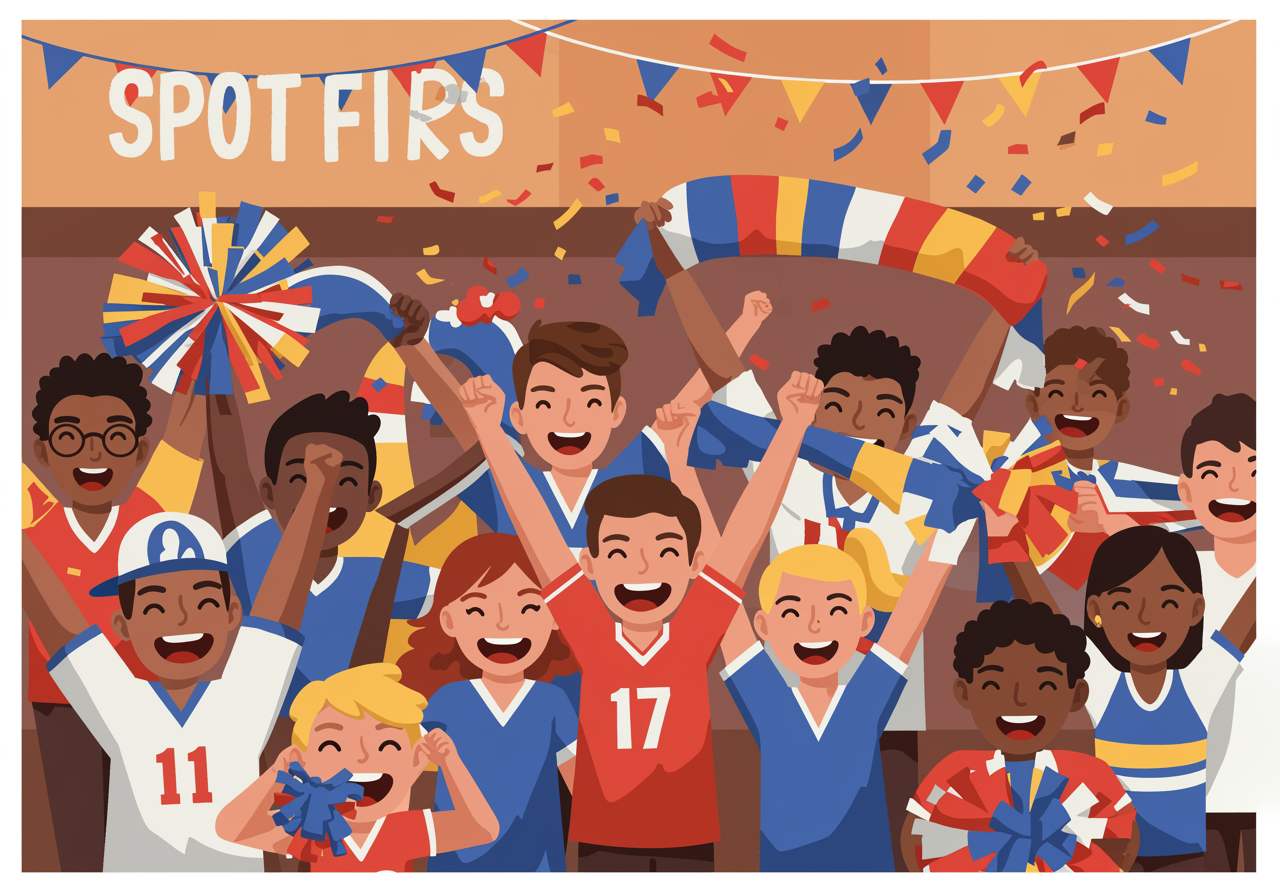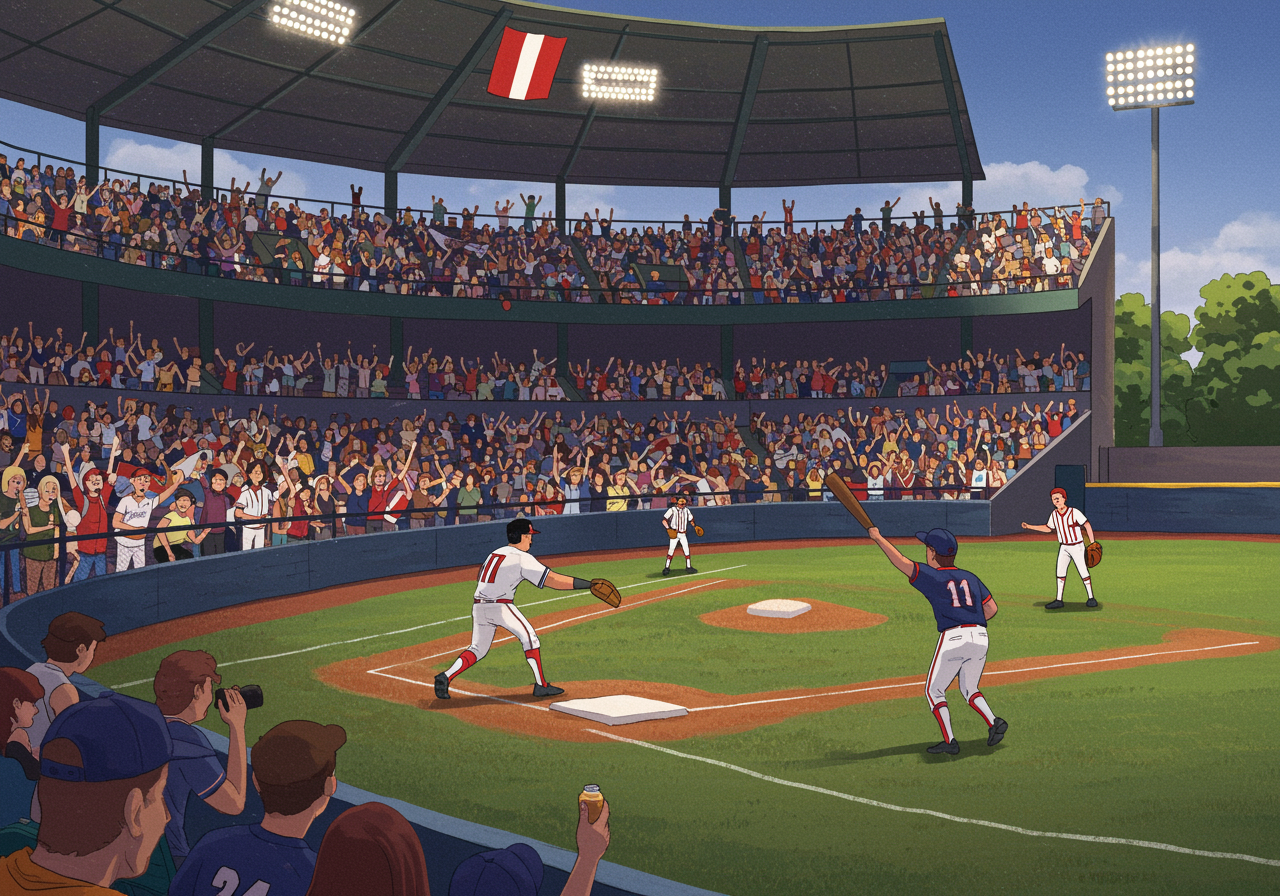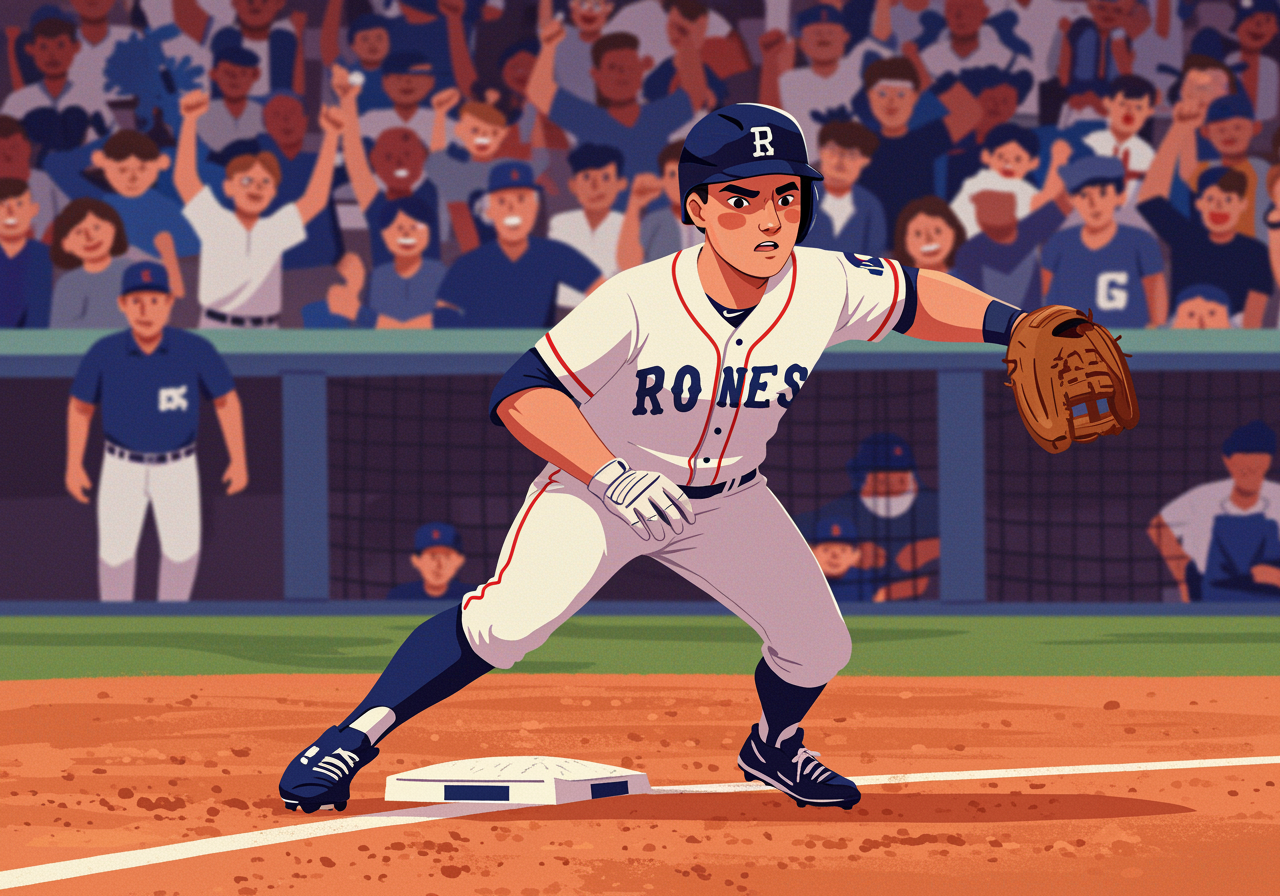The Wild Science of Why We Go Absolutely Bonkers for Sports ‘Firsts’
Why stealing a base for the first time makes 40,000 strangers lose their minds together
Ever wonder why crowds explode when a rookie steals their first base, and why that energy is so contagious it gives you goosebumps through your TV screen?
Overview
Think about the last time you watched a crowd go absolutely wild – maybe it was a sports game, a concert, or even a viral TikTok moment. There's something magical that happens when thousands of people share the same emotion at exactly the same time. When a player steals their first base, it's not just about running 90 feet – it's about hope, dreams, and the incredible human need to celebrate together. Understanding why we react so passionately to these moments helps us understand ourselves, our friendships, and why some memories stick with us forever.

Understand in 30 Seconds
Get up to speed quickly
- Your Brain on 'Firsts': Our brains are wired to get excited about new achievements because they represent growth and possibility. When we see someone succeed for the first time, we feel like we're witnessing something special and rare.
- The Contagion Effect: Emotions spread through crowds like wildfire through something called 'emotional contagion.' When one person gets excited, their energy literally jumps to the people around them.
- We Love Underdogs: Humans naturally root for people who are trying something new or challenging. A first stolen base represents someone taking a risk and succeeding, which makes us feel hopeful about our own risks.
- Shared Stories Create Bonds: When thousands of people witness the same special moment, they become part of a shared story. This creates instant connection and belonging, even with total strangers.
Real Life Scenario
Situations you can relate to
Imagine you're at your friend's first piano recital, and they've been nervous about this one tricky piece for months. As they sit down to play, your heart starts racing too – not because you're performing, but because you care about them succeeding. When they nail that difficult part, you probably cheer louder than anyone else in the room. Now multiply that feeling by 40,000 people who've been following a rookie baseball player's journey all season. They've watched him strike out, seen him practice, heard his interviews about working toward his first stolen base. When he finally makes that dash to second and slides in safe, it's like 40,000 friends all celebrating together. The louder the crowd gets, the more excited everyone becomes, creating this amazing cycle of shared joy that's almost impossible to resist.

Role Play
Spark a conversation with “what if” scenarios
What if you were a sports broadcaster calling a rookie's first stolen base?
- Role play: Take turns being the announcer and describing the play with growing excitement. Notice how your energy affects each other and how fun it is to build suspense together.
What if you were the rookie player about to attempt your first steal?
- Role play: Act out the nervousness, the decision to run, and the relief of making it safely. Talk about what you're thinking and feeling during each moment.
What if you were a fan in the crowd who's been following this player all season?
- Role play: Show how you'd react differently than a casual viewer – demonstrate the investment and emotional connection that makes the moment more meaningful.
FAQs
Frequently asked questions people want to know
Why do people get more excited about 'firsts' than regular achievements?
Firsts represent potential and new beginnings. They're rare and special, making us feel like we're witnessing history. Plus, everyone can relate to the nerves and excitement of trying something new.
Is it weird to get emotional about strangers playing sports?
Not at all! Humans are naturally empathetic. When we follow someone's journey, our brains start to care about their success almost like they're our friend. It's actually a sign of healthy emotional connection.
Why do some people get way more into sports than others?
Everyone connects differently with stories and communities. Some people find deep meaning in following teams and players, while others prefer different types of shared experiences like music, gaming, or books.
Examples in the Wild
See how this works day to day
- When 18-year-old Juan Soto got his first major league hit in 2018, the crowd erupted even though he was playing for the visiting team, showing how fans appreciate talent regardless of allegiance (ESPN Sports Analysis)
- Studies show that crowd noise can actually improve athlete performance by up to 10%, proving that fan energy has real, measurable effects (Journal of Sports Psychology Research)
- The 'wave' phenomenon in stadiums demonstrates emotional contagion – once one section starts, the behavior spreads predictably around the entire venue (Behavioral Psychology Quarterly)
- Social media amplifies these moments – videos of first achievements often go viral because viewers want to share in the emotional experience, even secondhand (Digital Media Trends Report)
In Summary
What you should know before you start
- Our brains are programmed to get excited about firsts because they represent growth and new possibilities
- Emotions spread through crowds like a chain reaction, making individual excitement multiply into collective celebration
- We naturally root for people taking risks because their success gives us hope for our own challenges
- Shared emotional experiences create instant bonds between strangers, making us feel part of something bigger
Pro-tip for Parents
You got this!
If your child seems confused by intense fan reactions (or if you find them silly), try connecting it to something they care deeply about – like their favorite YouTuber hitting a milestone, or a friend succeeding at something they've worked hard for. The emotion is the same whether it's sports, gaming, music, or any other passion. Help them see that caring about others' success is actually a beautiful part of being human.

Keep an Eye Out For
Find these examples in everyday life
- Rookie debuts in any sport – watch how crowds react differently to first-time moments versus routine plays
- Viral videos of people achieving personal firsts – notice how viewers in comments celebrate strangers' successes
- Your own family's 'first' moments – graduations, driver's licenses, job interviews – and how you naturally want to celebrate together
Explore Beyond
Look up these related research topics
- The psychology of why we love underdog stories in movies and real life
- How social media has changed the way we share and experience emotional moments
- The science of team loyalty and why we stick with our favorite teams through good times and bad